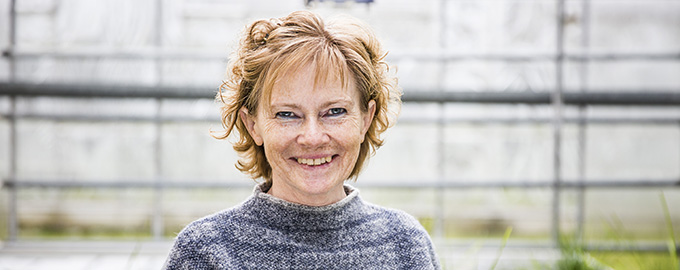
Seeds do not take up much space individually but seen as a whole the production and export of grass and spinach seeds is important for Denmark. Danish farmers account for approximately half of EU’s total production of grass and clover seeds and 75 percent of the world’s spinach seed production.
Danish farmers are very good at seed production but the production can still be improved. Higher yields and reduced pesticide use are at the top of the wish list. At the same time, customer demands are high. Top quality grass seed is a must in order to produce turf that is slow-growing, very dark and absolutely weed-free. With regard to spinach seeds, only three weed seeds are permitted in a 250 g sample that typically contains 20,000-25,000 spinach seeds.
Researchers from the Department of Agroecology, Aarhus University, are partners in a research project, Vinderfrø2025, which has been granted 15 million DKK from the Green Development and Demonstration Programme (GUDP) and is a collaboration between the Danish Seed Council, Seges, and Aarhus University.
The project aims at developing sustainable solutions for reducing the need for herbicides while producing higher, top quality seed yields.
One of the goals of the project is therefore to achieve a better and more stable effect of plant growth regulators via differentiated and targeted nitrogen application and determination of the crop’s precise requirements based on optimised crop monitoring. The goal is to find the optimal combination of developmental stage, climate, growing conditions, nitrogen rate, and application time and dosage of the plant growth regulators by means of sensor technology, among other things.
Another goal of the project is to reduce the use of herbicides in seed grass crops. This will be achieved by developing row cropping systems in which a combination of band spraying and inter-row mechanical weeding with treatments with selective herbicides in the rows will be used.
- In this way, we expect to reduce herbicide treatment frequency by 50-70 percent, says Senior Researcher Birte Boelt from the Department of Agroecology.
Weeds and fungal diseases are the main challenges in spinach seed production. With regard to fungal diseases, the researchers will screen various cover crops for their preventive effect on wilt disease in spinach and investigate biological measures.
To prevent weeds, the researchers will investigate the possibilities for combining strip tillage and band spraying in the spinach rows with mechanical weeding or band spraying between the rows.
Name: Vinderfrø2025
Duration: Four years beginning in 2017
Funding: 15m DKK from the Green Development and Demonstration Programme (GUDP)
Partners: The Danish Seed Council (project leader), Department of Agroecology at Aarhus University, Seges, DLF, DSV-Frø Danmark A/S, Barenbrug Danmark Aps, Jensen Seeds A/S, Vikima Seed and Syngenta Danmark.